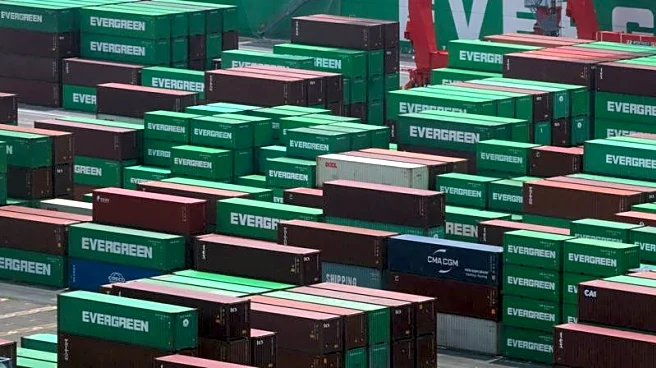By Makiko Yamazaki
TOKYO (Reuters) - Japan's exports dropped for a third straight month in July, government data showed on Wednesday, as U.S. tariffs continued to weigh on manufacturers, raising concerns
about the outlook for the country's export-reliant economy.
The outcome follows unexpectedly strong growth in gross domestic product (GDP) in the April-June quarter, separate data showed last week, fuelled by surprisingly resilient exports and capital expenditure.
Total exports from the world's fourth-largest economy dropped 2.6% year-on-year in July in value terms, more than a median market forecast for a 2.1% decrease and following a 0.5% drop in June.
Exports to the United States in July fell 10.1% from a year earlier, while those to China were down 3.5%, the data showed.
Imports in July dropped 7.5% from a year earlier, compared with market forecasts for a 10.4% fall.
As a result, Japan ran a deficit of 117.5 billion yen ($795.4 million) in July, compared with a forecast of a 196.2 billion yen surplus.
The United States imposed 25% tariffs on automobiles and auto parts in April and threatened 25% levies on most of Japan's other goods. It later struck a trade deal on July 23 that lowered tariffs to 15% in exchange for a U.S.-bound $550 billion Japanese investment package.
The agreed tariff rate on automobiles, Japan's largest export sector, is still far higher than the original 2.5%, exerting pressure on major automakers and parts suppliers.
Japanese automakers have mostly absorbed additional tariff costs by cutting prices to protect shipment volumes. But economists expect them to eventually pass on costs to U.S. consumers, which could hamper their sales in the U.S. market.
($1 = 147.7200 yen)
(Reporting by Makiko Yamazaki; Editing by Jacqueline Wong)










